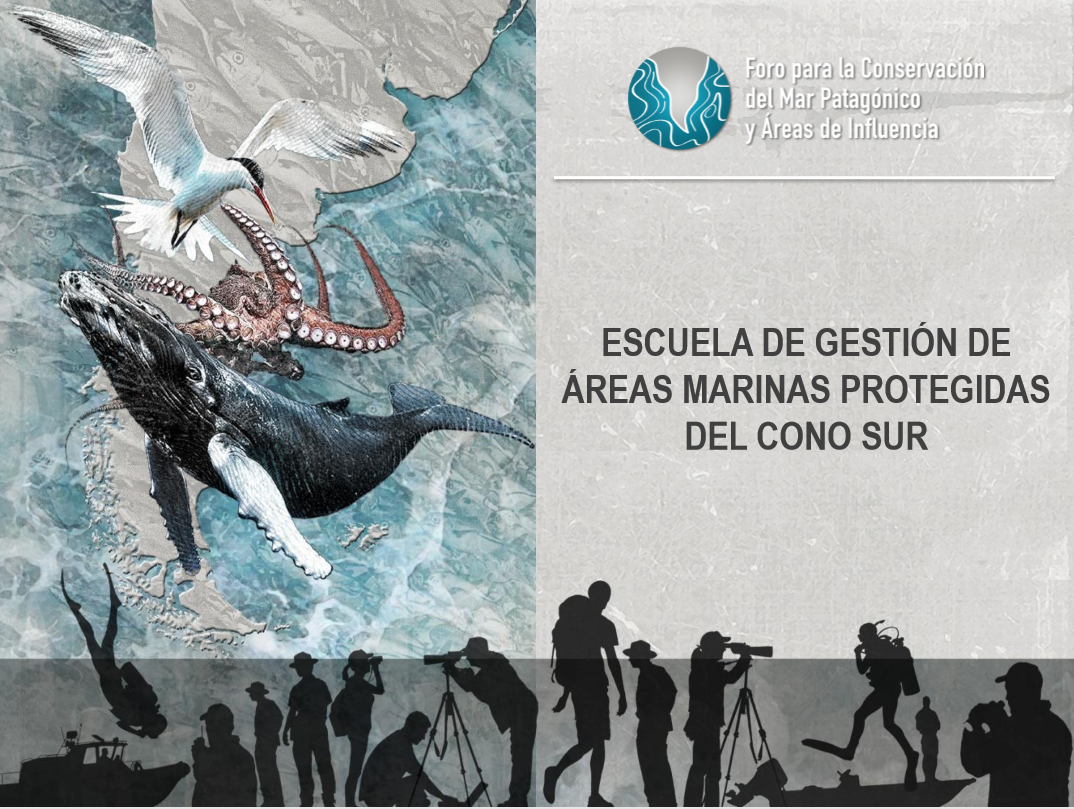For the second consecutive year, Argentina, Chile and Uruguay join efforts to strengthen the capacities of people responsible for Marine Protected Areas in order to contribute to MPAs effective management. Regional focus, focus on competencies and inter-institutional interaction are some of the keys to this initiative, unprecedented in the region.
Marine Protected Areas (MPAs) are created to preserve environments and species, and to ensure the sustainable use of their resources. When well managed, they generate environmental, social and economic benefits, which can be crucial for coastal communities and regional economies. However, many MPAs of the Southern Cone are not fully effective as a result of the usual shortcomings of the countries in question.
Training personnel responsible for the management and supervision of these areas is essential. With the recent creation of MPAs in Chile and two more MPAs planned in Argentina, there is an important demand for human resources specialized in the effective management of these marine conservation tools. Thus, in order to develop institutional capacity in Argentina, Chile and Uruguay, in 2017 the School for the Management of Marine Protected Areas of the Southern Cone launched its pilot course, with a second edition due to begin on July 19.
In the next 16 weeks, 20 AMP managers, administrators, consultants and supervisors from the 3 countries will be trained, through virtual learning and in person, in the design and implementation of processes for the development of management plans. In 2017, participants were trained for the evaluation of AMPs effectiveness and project management.
The School for the Management of Marine Protected Areas of the Southern Cone intends to identify strategically the capacities that each country needs to develop and to train the professionals responsible for them. “Other priority competencies from different professional fields were identified for future training activities: Administration, planning, conservation, sustainable use of resources, control and surveillance, public use, environmental communication and education, governance, institutional and interpersonal relations,” details the School’s report on Lessons Learned and Future Projection, published in www.marpatagonico.org/publicaciones.
Sustainability of the initiative
It is essential to keep investing in training the staff in charge of MPAs in order to achieve the conservation of the sea for which these tools are created. The initiative and its foundations were even declared “Of Interest” by the Honorable Chamber of Senators of Argentina in November 2017.
During 2017 and 2018, the School was driven by the Forum for the Conservation of the Patagonian Sea together with the National Parks Administration of Argentina, the Ministry of Environment of Chile and the Ministry of Housing, Land Planning and Environment of Uruguay. The participants received a full grant thanks to the support of the organizations that coordinate the initiative -Argentina Wildlife Foundation, Wildlife Conservation Society (WSC) Chile and the World Wildlife Fund (WWF) Chile-, and the sponsors -Oceans5, WWF Holland, ALUAR and Waitt Foundation.
This example of shared regional effort helped address common needs and save resources, and it demonstrated that collaboration between state institutions, civil society organizations and donor entities in different countries is feasible and allows for the organization of effective training activities that help meet common regional needs.
The challenge ahead will be to sustain a continuous training mechanism that encompasses a significant percentage of the personnel in charge of MPA systems in the Southern Cone countries. In order to give continuity to this effort and increase the amount of trained staff, it will be necessary for government agencies to gradually take on leadership of the initiative and provide institutional, human and financial resources permanently.
